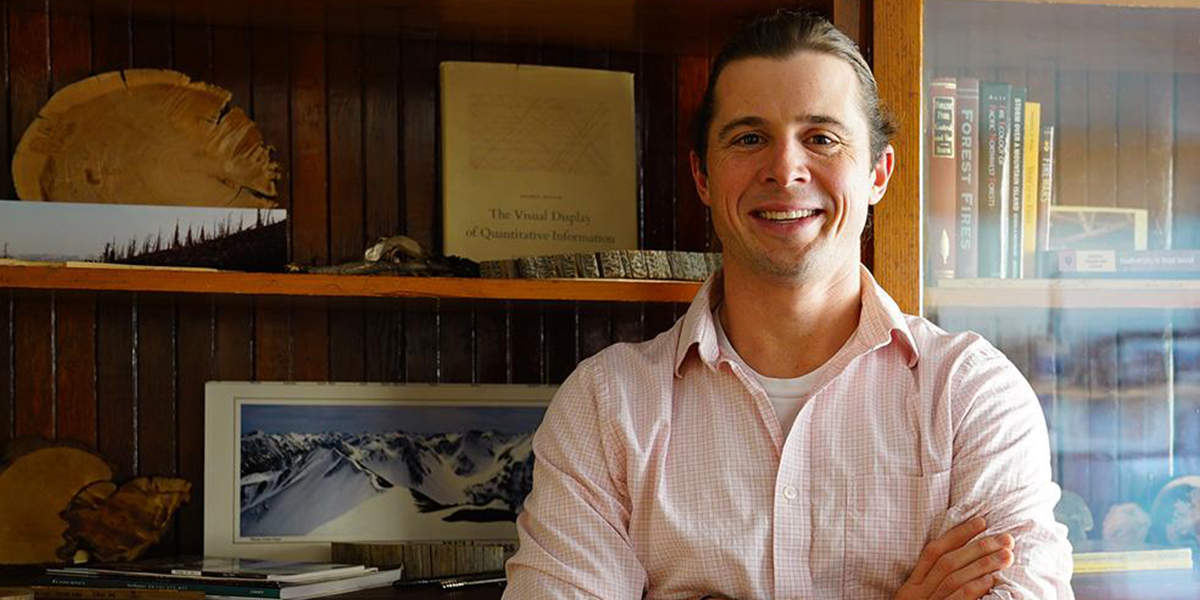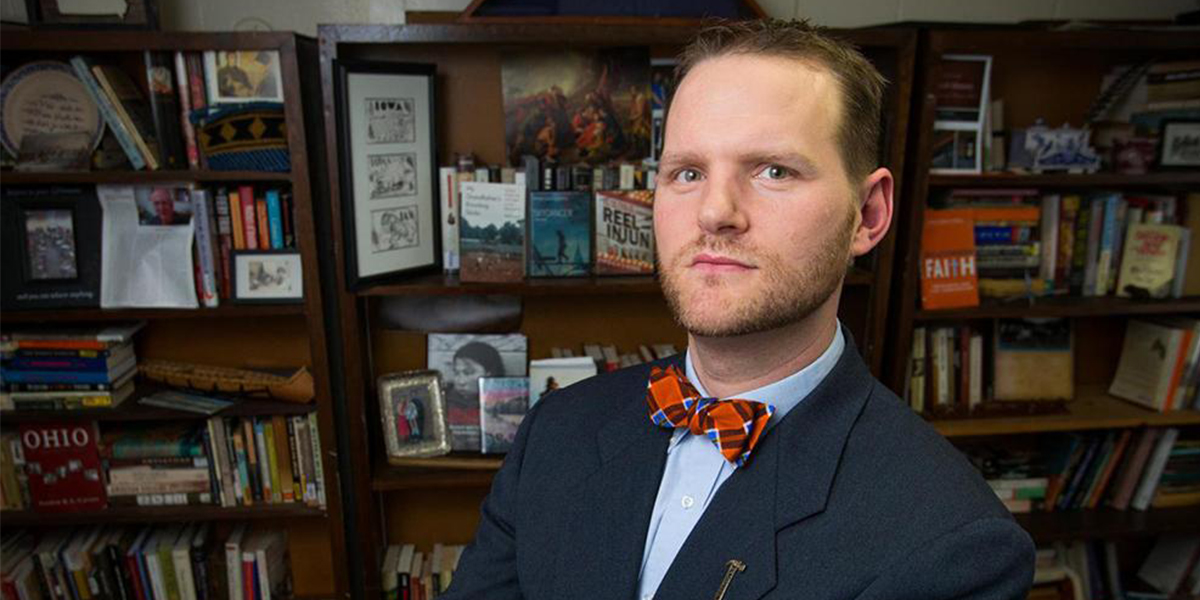

What is wilderness?
To help answer this question, the University of Wisconsin-Platteville’s College of Liberal Arts and Education will host a faculty forum, “Reconsidering Wilderness,” on Thursday, March 7, in Room 136 Doudna Hall from 5-6:30 p.m. The forum will address issues related to the impact of historical Ojibwe landuse on the modern forests of the Boundary Waters Canoe Area Wilderness, a 1,000,000-acre, natural landscape of rivers, lakes and forests in northeast Minnesota, and how our ideas of wilderness are shaping the ecological fate of entire plant communities in northern Wisconsin and the Great Lakes Region.
At the forum, Dr. Evan Larson, associate professor of geography at UW-Platteville, will present his research on fire activity over the past 400 years along the Border Route, an historical travel corridor used by Ojibwe and Voyageurs during the fur trade of the 1700s and 1800s – research that illustrates the important legacies in the modern forests of the region that are the direct result of Ojibwe landuse.
Larson’s project, “Documenting Ojibwe Land Use Through Tree-Ring Analysis of Culturally Modified Trees in the Boundary Waters Canoe Area Wilderness,” funded by the National Science Foundation and built on by subsequent research contracts with Quetico Provincial Park in Northwestern Ontario, Canada, advanced understanding about the interplay between people and the natural environment to further understand what factors led to the development of current landscape patterns.
Through this work, Larson is helping redefine the meaning of wilderness to more completely integrate the influences of people in what are often considered pristine environments.
“The research called into question the appropriateness of the definition of wilderness defined in the 1964 Federal Wilderness Act as land ‘untrammeled by man, where man himself is a visitor who does not remain,’” said Larson. “During the lecture, I will discuss the historical basis for our modern notions of wilderness and nature that many people carry, while taking audience members on what is, hopefully, a visually-stunning voyage through the spectacular landscapes of the Boundary Waters Canoe Area Wilderness and Quetico Provincial Park to come to a more complete understanding of the environmental history of this very special region.”
From April 2015-August 2017, Larson documented the location of culturally modified trees, or trees that were intentionally scarred by people for utilitarian purposes, across the Boundary Waters Canoe Area Wilderness. He then used dendrochronology, the science of tree rings, to determine the exact year that the trees were scarred in order to determine specific places and times where pre-European settlement land use occurred.
The information was then used in conjunction with a network of sites with fire history information that spanned the past 400 years that Larson developed with colleagues at the University of Minnesota, thereby enabling the determination of how past Ojibwe land use influenced patterns of fire activity and forest development in a modern wilderness area. The research provided the first absolutely-dated and spatially-precise record of fur trade-era Ojibwe land use in the Great Lakes region and holds important implications for the management of protected areas across the country.
Following Larson’s presentation, Dr. Eugene Tesdahl, assistant professor of history at UW-Platteville, will respond by offering both Indigenous and fur trade contexts to the concept of wilderness in the Great Lakes Region.
Larson has taught at UW-Platteville since fall 2009. His specialties include biogeography, dendrochronology, fire ecology and historical ecology. Larson holds a B.A. in environmental science from Willamette University in Salem, Oregon; an M.S. in geography from the University of Tennessee in Knoxville; and a Ph.D. in geography from the University of Minnesota-Twin Cities.
Based on his research in the Boundary Waters and elsewhere, Larson was invited to participate in an international workshop on “Diverse knowledge systems for fire policy and biodiversity conservation” that was hosted by the Centre for Quaternary Research at the Royal Holloway University of London in September 2018.
Tesdahl has taught at UW-Platteville since fall 2014. His specialties include early North America, Native American history and the Atlantic world. Tesdahl holds degrees in history from Luther College in Decorah, Iowa; Miami University in Oxford, Ohio; and the University of Colorado at Boulder.
The forum is free and open to university students, faculty, staff and community members. Refreshments will be served.
The LAE Faculty Forum Series, a program instituted in the fall of 2004, is sponsored by UW-Platteville’s College of LAE. The purpose of the forum is to allow faculty to present information in their research areas. Presenters tailor their presentations to a general audience.